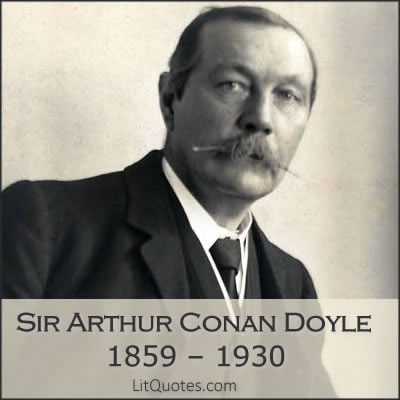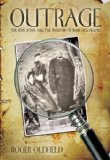Unwelcome truths are not popular. ~ The Valley of Fear by Sir Arthur Conan Doyle



I have, indeed, no abhorrence of danger, except in its absolute effect – in terror. ~ The Fall of the House of Usher by Edgar Allan Poe
He understood now why the world was strange, why horses galloped furiously, and why trains whistled as they raced through stations. All the comedy and terror of nightmare gripped his heart with pincers made of ice. ~ The Other Wing by Algernon Blackwood
“Too much! Wait till you have lived here longer. Look down the valley! See the cloud of a hundred chimneys that overshadows it! I tell you that the cloud of murder hangs thicker and lower than that over the heads of the people. It is the Valley of Fear, the Valley of Death. The terror is in the hearts of the people from the dusk to the dawn. Wait, young man, and you will learn for yourself.” ~ The Valley of Fear by Sir Arthur Conan Doyle
Terror made me cruel. ~ Wuthering Heights by Emily Bronte
And something born of the snowy desolation, born of the midnight and the silent grandeur, born of the great listening hollows of the night, something that lay ‘twixt terror and wonder, dropped from the vast wintry spaces down into his heart—and called him. ~ The Glamour of the Snow by Algernon Blackwood
“They all agreed that it was a huge creature, luminous, ghastly, and spectral. I have cross-examined these men, one of them a hard-headed countryman, one a farrier, and one a moorland farmer, who all tell the same story of this dreadful apparition, exactly corresponding to the hell-hound of the legend. I assure you that there is a reign of terror in the district, and that it is a hardy man who will cross the moor at night.” ~ The Hound of the Baskervilles by Sir Arthur Conan Doyle
 Need some advice or perspective? Here are 40 great quotes from literature that may help. These are some of our favorites from our words of wisdom quote collection.
Need some advice or perspective? Here are 40 great quotes from literature that may help. These are some of our favorites from our words of wisdom quote collection.






Sir Arthur Conan Doyle was born in 1859 and died in 1930. He’s best known as the creator of the Sherlock Holmes. But here are five things about him that you may not know.
1 – Conan Doyle was a physician. He attended the University of Edinburgh Medical School and graduated in 1881 with a Bachelor of Medicine and Mastery of Surgery.
2 – He worked as a ship’s surgeon on a whaling vessel.
3 – Conan Doyle was not knighted for his Sherlock Holmes stories. The War in South Africa: Its Causes and Conduct caught the eye of the monarchy. In it, Conan Doyle comes to Great Britain’s defense against charges of war crimes in the Boer War.
4 – George Edalji was an innocent man convicted of mutilating and killing livestock. Who helped him prove his innocence? The case was solved by Arthur Conan Doyle. Sir Arthur solved two real-life crime cases, the George Edalji case and the Oscar Slater case.
5 – Conan Doyle believed in Spiritualism. It’s true. The man who created the ever-logical Sherlock Holmes believed in spirits and things like automatic writing.
You can learn more about all of these subjects at our partner site, Conan Doyle Info. As the site says, Sherlock Holmes is just the beginning.
The dictionary tells us that sympathy is a felling of pity or sorrow for someone else’s misfortune. And here’s how it’s used in quotes by the masters of literature.
My heart was fashioned to be susceptible of love and sympathy, and when wrenched by misery to vice and hatred, it did not endure the violence of the change without torture such as you cannot even imagine. ~ Frankenstein by Mary Shelley
I don’t know if it be a peculiarity in me, but I am seldom otherwise than happy while watching in the chamber of death, should no frenzied or despairing mourner share the duty with me. I see a repose that neither earth nor hell can break; and I feel an assurance of the endless and shadowless hereafter – the Eternity they have entered – where life is boundless in its duration, and love in its sympathy, and joy in its fulness. ~ Wuthering Heights by Emily Bronte
“Oh! I have a heart to be stabbed in or shot in, I have no doubt,” said Estella, “and of course if it ceased to beat I should cease to be. But you know what I mean. I have no softness there, no—sympathy—sentiment—nonsense.” ~ Great Expectations by Charles Dickens
He spoke wistfully of a sudden leaving, a breaking of old ties, a flight into a strange world, ending in this dreary valley, and Ettie listened, her dark eyes gleaming with pity and with sympathy – those two qualities which may turn so rapidly and so naturally to love. ~ The Valley of Fear by Sir Arthur Conan Doyle
more sympathy quotes from literature

 Arthur Conan Doyle didn’t just write mysteries, he actually solved a few. One of his most famous cases is the George Edalji case.
Arthur Conan Doyle didn’t just write mysteries, he actually solved a few. One of his most famous cases is the George Edalji case.
Roger Oldfield has written a book about the case, Outrage: The Edalji Five and the Shadow of Sherlock Holmes. Mr. Oldfield brings a unique perspective to the case as someone who has met descendents of individuals involved in the case. He’s also familiar with the area where the case took place.
Roger Oldfield recently told LitQuotes this about the case and about his new book:
![]()
‘SHERLOCK HOLMES AT WORK’. This was the headline in the Daily Telegraph on January 11 1907 when Sir Arthur Conan Doyle in the first of two articles announced to the world that he was taking up the case of George Edalji. The great novelist George Meredith, one of the many literary friends who wrote to congratulate him, put it this way: Sherlock Holmes, he said, had shown ‘what can be done in the life of breath’.
There had already been a national outcry in 1903 when George Edalji of Great Wyrley in Staffordshire had been convicted of wounding a pony, the 8th of a series of barbarous outrages against animals in his home village. The fact however that the very creator of Sherlock Holmes seemed in 1907 to be acting out the part of his own creation, the most famous character in British fiction, gave George Edalji’s cause worldwide fame: newspapers from New York to Paris to Mumbai reported the developing events of 1907 with fascination. Conan Doyle not only acted as sleuth, scouring the scene of the crime and interviewing the major players; he also had his real-life Inspector Lestrade as adversary, in the shape of George Anson, Chief Constable of Staffordshire, whom he blamed for George Edalji’s wrongful conviction.
The shadow of Sherlock Holmes has hung over the story every since. ‘It is a blot upon the record of English Justice,’ Conan Doyle wrote in his Memories and Adventures in 1924, ‘and even now it should be wiped out.’ This was the verdict which echoed for decades through the pens of many of the dozens of his admirers and biographers – ‘a very gentle, perfect knight (Lamond, 1931), a ‘brilliant vindication of Edalji’ (Pemberton, 1936), ‘the incarnation of the English conscience’ (Nordon, 1968). Even Julian Barnes, who has revived worldwide interest in the story in his novel Arthur & George (2005), the bookies’ favourite for the top literary prize in Britain in 2005, does not question Conan Doyle’s view that Edalji was innocent.
There is evidence, however, which runs counter to the Conan Doyle view, as the local historian Michael Harley suggested in the 1980s. Roger Oldfield’s book Outrage: The Edalji Five and the Shadow of Sherlock Holmes, Vanguard Press, 2010, is the first to go behind the scenes and assess the evidence for and against George Edalji in full. A conclusion is reached on whether the man who believed in fairies had been taken in by the mild-mannered, middle class myopic from Great Wyrley. As for Julian Barnes’s novel, that too is subjected to rigorous scrutiny and the general reader is given a glimpse into how far it remains true to the actual historical record.
Also new, and of special interest for Conan Doyle addicts, is an account of the extraordinary secret war which broke out between Conan Doyle and Chief Constable Anson. At one point their furious dispute led each of them to appeal to Winston Churchill for support. Anson was utterly contemptuous of the detective skills of the man many thought actually was Sherlock Holmes, and his seething hatred for the world-famous writer lasted until his death.
Roger Oldfield’s book suggests that the shadow of Sherlock Holmes hanging over the story has obscured the fascinating history of the Edalji family as a whole. His research has uncovered a mass of new material about all five members of the family which has never been published before.
For full details of the book see www.outrage-rogeroldfield.co.uk
‘unlikely to be surpassed as a comprehensive, intelligent, balanced and intensely readable account’ ~ The Newsletter of the Sherlock Holmes Society of London
‘certainly the best thing there is concerning the Edalji case on every count’ ~ D. Michael Risinger, Professor of Law, Newark, USA.